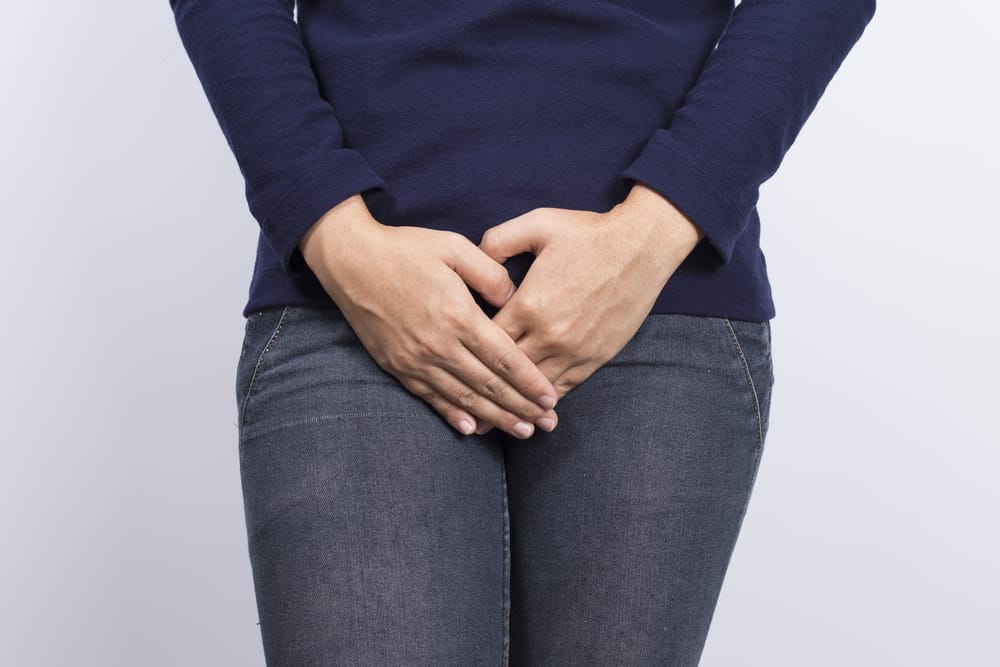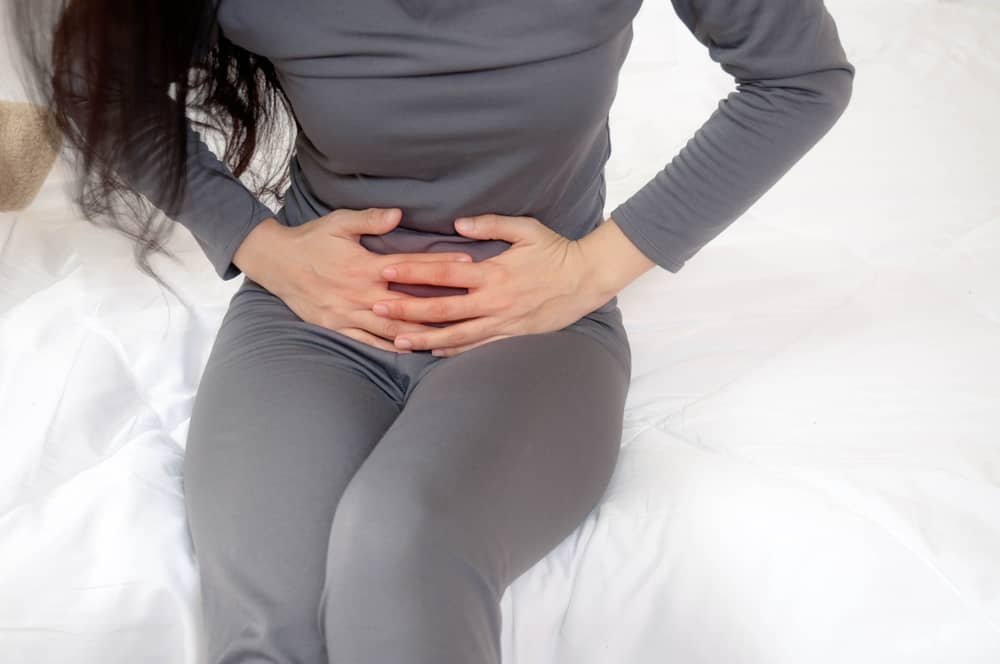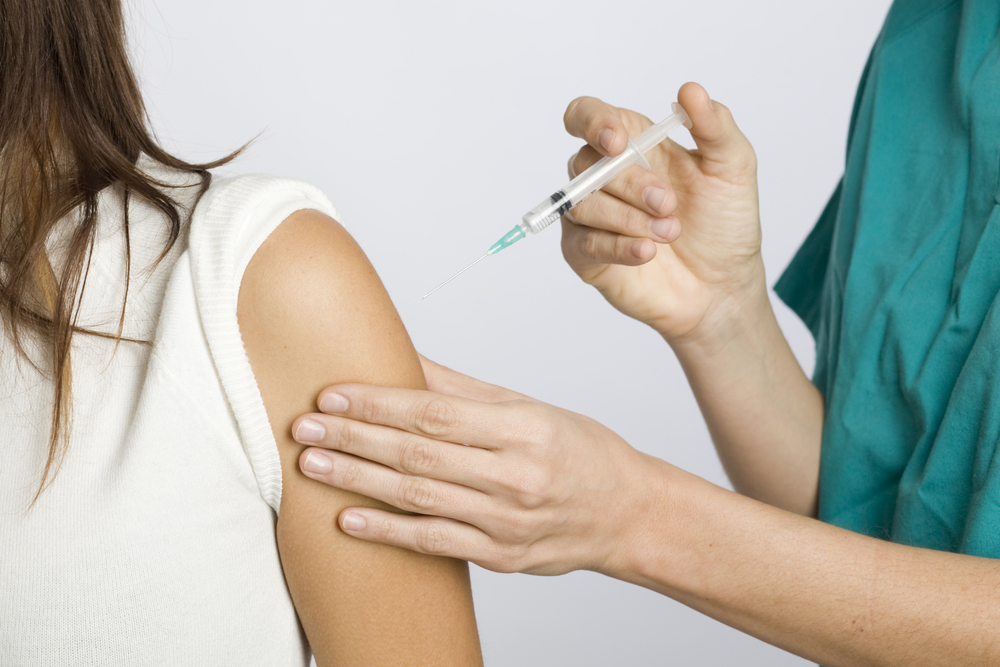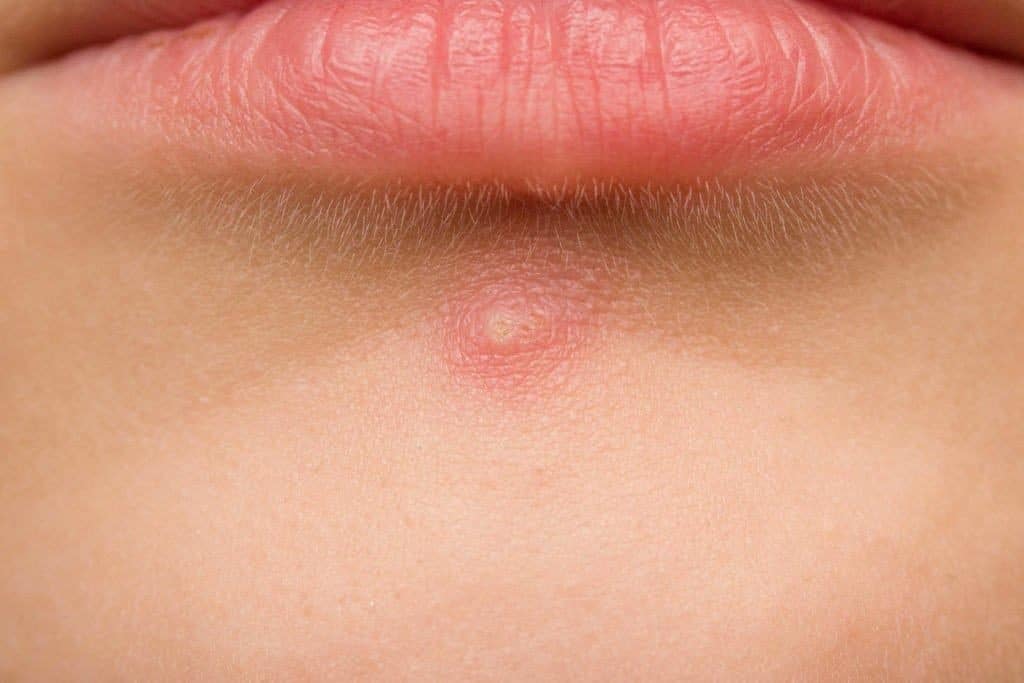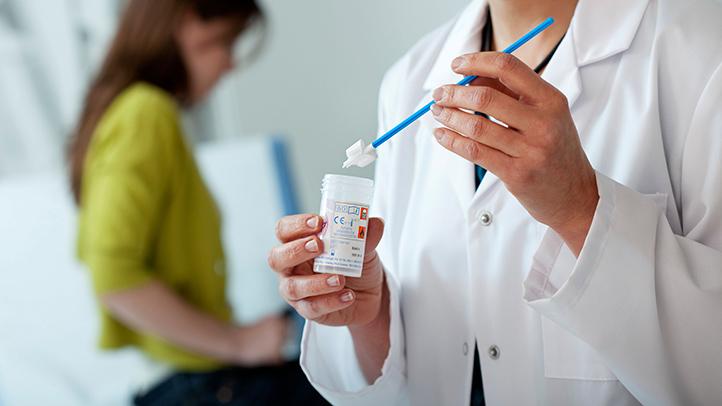Contents:
- Medical Video: Cervical Cancer Symptoms Awareness Video - Claire's Story
- What is cervical cancer?
- Note about cervical cancer
- The virus that causes cervical cancer
- The characteristics of cervical cancer that you should know
- 1. Exit spots of blood in the vagina
- 2. The pelvis hurts
- 3. Abnormal vaginal discharge
- 4. CHAPTER often irregular
- 5. The body becomes easily tired
- Risk factors that can increase a woman's cervical cancer at a young age
- Prevent HPV vaccination
- Start a healthy life to prevent cervical cancer
- 1. Regular exercise
- 2. Stop smoking
- 3. Start implementing a healthy diet
- 4. Routinely do pap smears
Medical Video: Cervical Cancer Symptoms Awareness Video - Claire's Story
The cause of cervical cancer or cervical cancer is the HPV virus (human papilloma virus). There are around 100 types of HPV virus and 13 of them can be the cause of cervical cancer. What other causes of cervical cancer should be known? Check out the full review below about the causes, symptoms of cervical cancer, and how to prevent them
What is cervical cancer?
Cervical cancer is a cancer that occurs when there are cells in the cervix or the cervix becomes abnormal and continues to grow uncontrollably. These abnormal cells can develop rapidly, resulting in tumors in the cervix. Malignant tumors develop into a cause of cervical cancer.
This cancer attacks the cervix or the cervix. The cervix itself is an organ that is shaped like a tube that extends, its function is to connect the vagina to the uterus.
This cancer is one of the most common types of cancer in women throughout the world. However, to find out the existence of symptoms of cervical cancer, do routine pap smear tests and early prevention with vaccines. Both can help find out and prevent cervical cancer early.
Note about cervical cancer
From 1999 to 2008 cervical cancer increasingly attacked women at a young age. Reports obtained from one of the journals on the site National Center for Biotechnology Information, stated that there were 21 percent of women aged 20-29 years who were affected by the cervix, even accounting for one percent of women under the age of 20 who were affected by this deadly cancer.
There are also an average of 14 cases of cervical cancer per year in young women aged 15-19 years. Cervical cancer deaths in Indonesia are high and are mostly caused by delays in diagnosis. Then, what is the cause cervical cancer in young women?
The virus that causes cervical cancer
In 2012,WHO states there are more than 270 thousand cases of death in the female population due to cancer. While the number of new cases of cervical cancer amounted to almost 445 thousand in 2012.
Cervical cancer is a cancer that appears on a woman's cervix. The cervix itself functions as the entrance to the uterus from the vagina. All women of various ages are at risk of developing cervical cancer.
But this disease tends to be experienced by sexually active women, including young women in their 20s who are already sexually active, even though this virus can also spread through skin to skin contact.
Research found that even 99.7 percent of cervical cancer is caused by HPV. HPV is a group of viruses, where there are more than 100 types of HPV.
HPV virus generally spread through sexual intercourse, where direct contact occurs between the genital skin, mucous membranes, or exchange of body fluids, and through oral sex. After starting sexual relations, it is estimated that 33 percent of women who are susceptible to HPV infection.
The characteristics of cervical cancer that you should know
Many women who do not realize or even underestimate the sign they experience what their vagina is. In fact, these signs can be characteristics of cervical cancer to watch out for. Then, what are the early symptoms of cervical cancer that women need to watch out for?
1. Exit spots of blood in the vagina
Symptoms of cervical cancer can start you suspect if suddenly blood comes out or blood spots from the vagina, even though at that time you are not in your menstrual period. You may worry, because this is an early symptom of cervical cancer. Usually, bleeding spots occur after you have sex. Or it could be blood coming out during menstruation, the amount is far more than usual.
Both of these can be characteristics of cervical cancer in the early stages. Although the discharge of blood from the vagina can be caused by various things, then it's good if you immediately check your condition to the doctor.
2. The pelvis hurts
Do you feel pain or pain in the pelvic area? If so, don't underestimate the pain. This can be one of the characteristics of cervical cancer that must be observed if you begin to feel it.
Because the pain that appears in the pelvic area when entering menstruation may be normal. But if you feel it when you do it sex with a partner, the pelvic pain that you feel is abnormal and can be a symptom of early stage cervical cancer.
If one of the cervical signs or features often occurs, you should immediately consult yourself. You can also reduce pain by taking painkillers like ibuprofen.
3. Abnormal vaginal discharge
In fact, vaginal discharge is normal and must be produced by the vagina in every woman, except when experiencing a certain health condition. However, there are times vaginal discharge miss V is abnormal and shows a symptom of cervical cancer or other health problems.
For example, if the vaginal discharge issued by miss V smells pungent and different from usual, then this indicates that you may experience a health problem. But, don't be afraid first, because abnormal vaginal discharge can be caused by various things or as.
4. CHAPTER often irregular
Changes in irregular bowel movements can be a symptom of a disease, including symptoms of cervical cancer. Note, whether you have recently become difficult to defecate. Because, this condition might indicate that you have cervical cancer.
If the mass of cervical cancer has grown large enough, a cancerous lump can suppress your intestines and make you difficult to defecate. But, don't worry too much if you experience it, because this health disorder can be caused by other health conditions, not just a feature of cervical cancer.
You may lack food or drink containing fiber. Consult with your doctor about defecating problems that are not smooth.
5. The body becomes easily tired
Tired and tired, is a health characteristic that commonly occurs in people who experience chronic diseases. Symptoms of cervical cancer are often characterized by fatigue.
This fatigue is caused by cancer cells that begin to grow little by little to take energy and reserve your body's food. Quite often this will make you lack food and eventually get tired.
If these symptoms do not go away, then you should immediately consult a doctor if you begin to get tired quickly to anticipate the presence of cervical cancer characteristics in your body.
Risk factors that can increase a woman's cervical cancer at a young age
There are several risk factors for cervical cancer, and most are unhealthy lifestyles. Things that can be the cause of cervical cancer include:
- Sexual activity too earlycan cause a person susceptible to cervical cancer symptoms and the risk of being infected with HPV. This is dikarestion during the cervical organ structure is more susceptible to HPV infection. Most teenagers today are still rarely vaccinated with HPV.
- Changing sexual partners can also be one of the scourges for cervical cancer. Having multiple sexual partners will increase the risk of getting HPV.
- Smoke also often associated with an increased risk of symptoms of cervical cancer, especially the type of squamous cell cervical cancer.
- Weakened immune system make it easier HPV virus to develop into a cause of cervical cancer. This condition is more vulnerable if you have a weakened immune system due to other health conditions. For example, in people with HIV / AIDS.
- If you have been exposed to other sexually transmitted infections as as chlamydia, gonorrhea, syphilis, and HIV / AIDSYou can be at risk for cervical cancer.
- Take a long-term birth control pill. A number of studies have shown that taking oral contraceptives (birth control pills) for a long time, ie more than about five years, can increase the risk of cervical cancer characteristics. Talk to your obstetrician to use safe contraception.
Prevent HPV vaccination
Some types of HPV virus do not cause obvious symptoms. This HPV infection can actually disappear without medical treatment if early prevention has been carried out such as HPV vaccination which makes the antibody system stronger.
The good news is that not all women infected with HPV will suffer or experience the characteristics of cervical cancer. Good immunity can membasi and cleanse yourself with HPV infection.
However, body power can be increased by HPV vaccination in order to effectively form sufficient antibodies (immune system) in the body to fight HPV virus infection
Types of high-risk HPV, thought to contain dangerous genetic material can move from viral cells into cervical cells. This dangerous material or cell will begin to interfere with other good cell performance, until finally the cervical cells multiply uncontrollably. This process causes the appearance of a tumor and then turns into cancer.
No drug is known to cure HPV infection. This virus itself can remain in the body with or without treatment. However, as a precautionary measure, every woman is advised to accept HPV vaccination, because cervical cancer caused by the HPV virus can be prevented by vaccinating HPV.
Start a healthy life to prevent cervical cancer
1. Regular exercise
The characteristics of cervical cancer are often found in people who have risk factors for a weak body. So, to prevent this, strengthen your immune system. It's no secret if regular exercise provides a myriad of benefits for you.
In addition to maintaining immunity, fitness, exercise can also maintain your weight and overcome the accumulation of fat throughout the body. Because, people who are overweight are more at risk for cancer.
If you don't have a lot of time to exercise, you can still move actively through simple things every day such as walking to go to lunch, walk to the bus stop, pick up stairs instead of elevators, or at least do yoga 15 minutes before showering and get ready to the office.
2. Stop smoking
In addition to preventing cancer of the throat and lungs, efforts to stop smoking can also keep you from the characteristics of cervical cancer in your body. A study reported that smokers were twice as likely to develop cervical cancer as non-smokers.
This is because smoking can reduce the function of the immune system which often leads to the development of cervical cancer.
3. Start implementing a healthy diet
Following a healthy diet can prevent you from several chronic diseases. If you eat foods rich in antioxidants, flavonoids, folate, carotenoids, vitamin C, vitamin E and fiber, you can experience a reduction in the risk of cervical cancer by 40 to 60 percent.
These substances are reported to help clear HPV infection faster by inhibiting changes in cervical cells to cancer cells. Now, you can get the benefits of these substances by eating fruits, vegetables, nuts and seeds.
Some examples of vegetables that reduce the risk of cervical cancer are broccoli, cabbage, garlic, onion, lettuce, spinach, carrots, sweet potatoes, pumpkin. While the list of fruits that you can consume are avocados, apples, strawberries, orange juice.
If you are a fan of tea, try replacing it with green tea which can help prevent you from developing cervical cancer.
4. Routinely do pap smears
If you have been sexually active, married, and have already given birth, then you must undergo pap smear test. Because, this test is useful to see the possibility of the development of cervical cancer cells.
In this test, your obstetrician will take a sample of your cervical cells to look for possible cells that can turn into cancer. So, if there is a precancerous cell that is suspect, then the cell can be removed immediately.
Experts recommend that from the age of 21 and have had sexual intercourse, women must undergo a pap smear every three years until the age of 29 years. After that, you are recommended to routinely do pap smears up to 65 years of age within 3-5 years. The earlier you do a pap smear, the more you can prevent cancer cells from developing more severely.
However, although the lifestyle and eating patterns above can reduce the risk of cervical cancer formation, but this cannot prevent infection with HPV virus which is the culprit of cervical cancer. Because of that, you still need it HPV vaccine to prevent cervical cancer.

